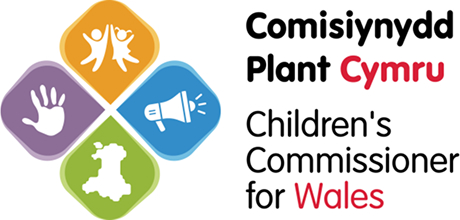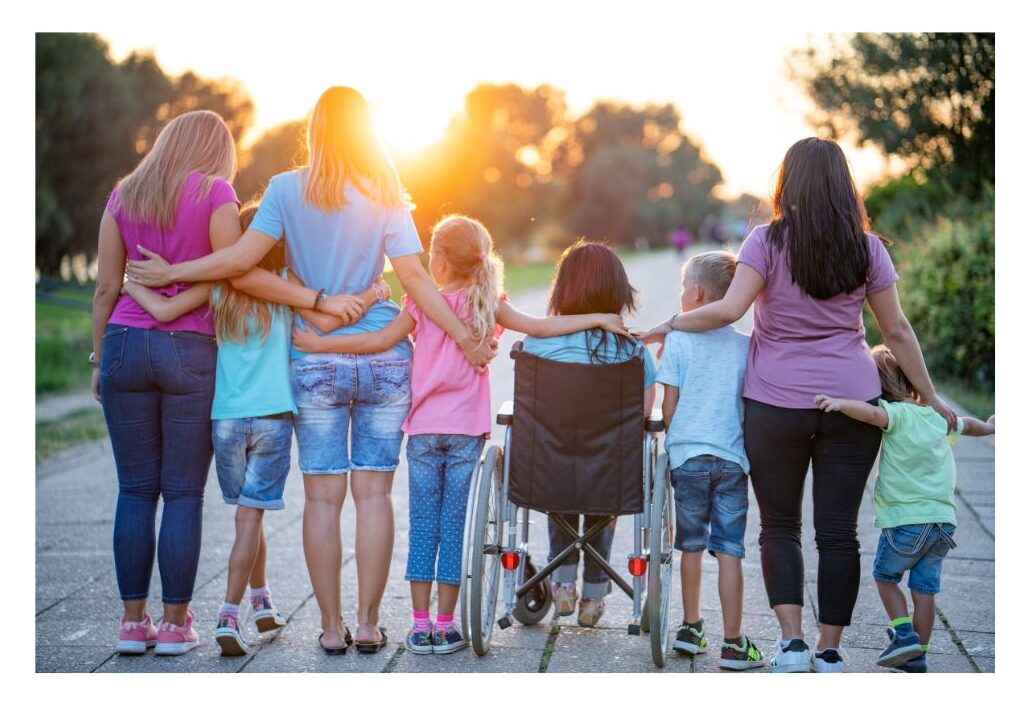This report investigates the existing knowledge base around the experiences of children and young people with disabilities in Wales to illuminate evidence gaps and potential areas for meaningful research.
We want a Wales for all children – a country where every child and young person understands their rights and are able to access support for those rights to be realised. We want to challenge and help improve local and national practice, to ensure more children’s rights and protected and realised.
In our three-year plan, we have committed to shining a light on specific issues and amplify unheard stories. Over the past year, we have sought to explore broader inequalities facing disabled children and young people in Wales. The work began by working on a situation analysis, to establish what’s known about disabled children’s lives in Wales, to illuminate evidence gaps and potential areas of work.
We considered the opportunities available to us to influence change, and prioritised those aspects through our project and core work this year. They include:
- Voice and agency
- Transport
- Education provision
- Employment
- Core work: Empowering children and their families
Here’s what we’ve done this year
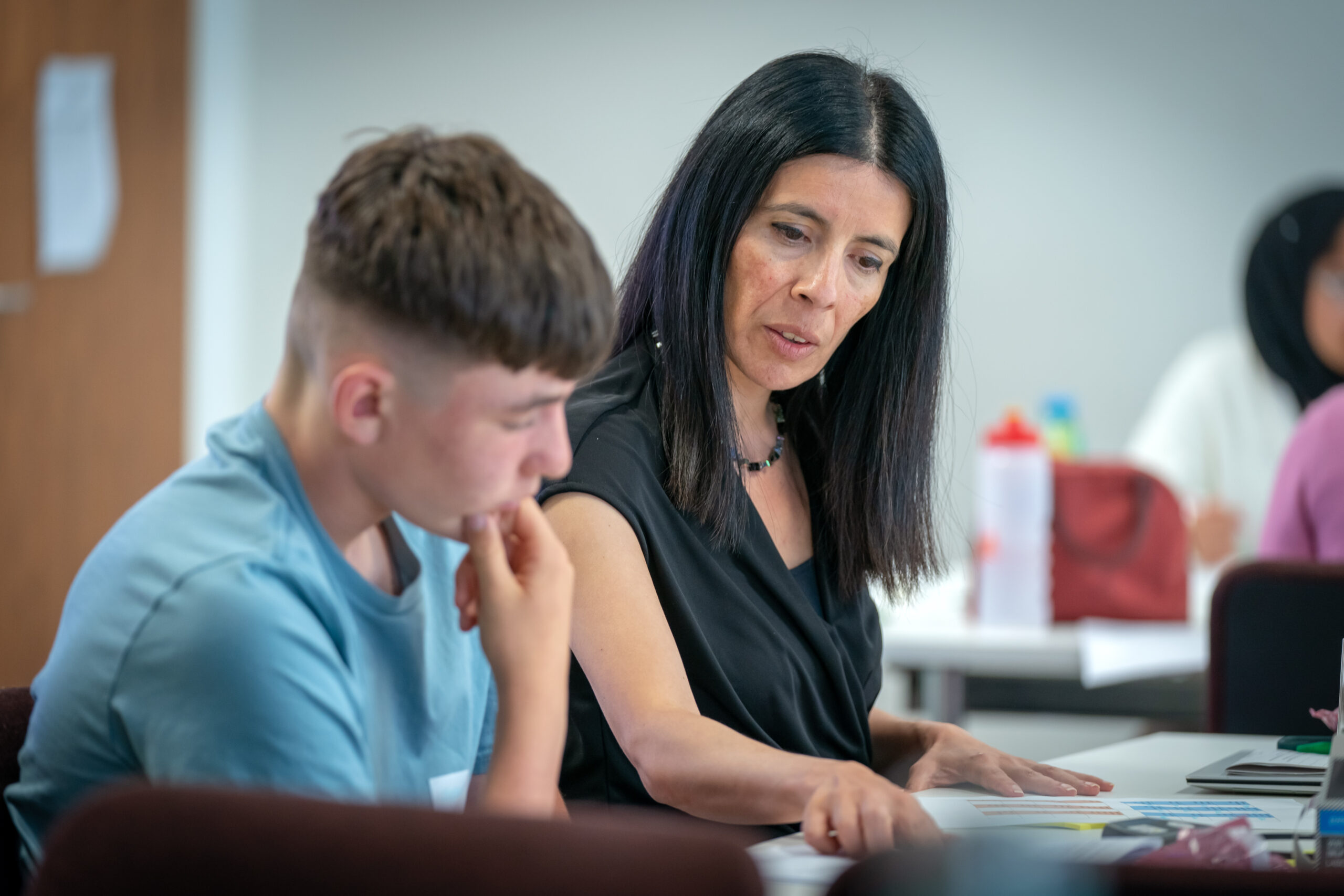
Voice and agency
We’ve been focussing efforts on supporting and enabling children and young people to have a say in decision-making, with this year’s work focused on opportunities to influence revisions to play guidance as well as duties on public bodies to consult with children and young people on other aspects of their lives.
Focus on play
Issues in relation to play are regularly raised with us by children and young people, and disabled children and young people are no exception. This, coupled with the fact that all local authorities in Wales have a duty to publish their Play Sufficiency Assessments in 2025 (these assessments provide evidence needed to identify gaps in provision and support the development of action plans to address any shortcomings), we made representation this year to Welsh Government to support their efforts in updating a toolkit and template to support local authorities with this duty.
The most recent UN Committee’s concluding observations to the UK Government and State Parties about the UK’s implementation of children’s rights also made reference to improvements required in relation to play opportunities. They called on governments to: “strengthen measures to ensure that all children, including children with disabilities, young children, children in rural areas and children with disadvantaged socioeconomic backgrounds, have access to accessible and safe public outdoor play spaces”
We were particularly keen for Welsh Government to make in-roads with this recommendation by ensuring children’s voices are heard throughout the Play Sufficiency Assessment process and consistently across all authorities in Wales. The refreshed play sufficiency statutory guidance ‘Wales – a Play Friendly Country’ includes an enhanced chapter about consultation, participation and engagement, including reference to our Right Way framework and guides.
Focus on supporting public bodies with duties
There are specific duties on public bodies to involve and work with children and young people, including the duty on local authorities in the Children and Families (Wales) Measure 2010 to promote and facilitate participation by children in decisions which might affect them and Chapter 5 of the Additional Learning Needs Code for Wales 2021 explains how local authorities and NHS bodies need to have due regard to the UN Convention on the Rights of the Child and the UN Convention on the Rights of Persons with Disabilities.
In March 2025, we hosted an event in St Asaph, north Wales where we explored those duties with over 80 professionals. The event showcased how a children’s rights approach could provide valuable framework for delivering these duties and to ensure effective participation of all children and young people.
In partnership with Wrexham University, we worked with a group of young people from St Christopher’s School, Wrexham to take part in Public Narrative training. Learners from the school received in-person, public narrative coaching sessions to support them to deliver a TEDx-style talk around the topic of ‘voice’.
Our aim was to ensure everyone left our event with a tangible goal that would further their work on participation and engagement with disabled children and children with additional learning needs. Here’s a summary of feedback from attendees:
When asked about one key message participants would take away from the event:
“To listen to children more”
“Listening to children and young people can take many forms”
“Taking time to listen, build rapport, saves time eventually”
“To be more aware of inclusiveness and thinking of different ways to get young people’s voices”
“Simple changes can make a massive change to participation”
“To empower children to give them a voice, to listen to it and act on it when they are unable to”
When asked about any changes they’d make to their own practice as a result of the event, we heard about:
“Ensuring we are using all the resources available to us to let children and young people have their voices”
“Adapt my thinking”
“Discussing communication preferences”
“Contact special needs schools to see how I can help with getting their voices heard”
“Share knowledge and resources with colleagues and implement in practice”
“I can implement some of the strategies into ongoing service development groups to further the inclusion of children”
“To review how much of an input children are having in our service and development”
The young people involved in this project reflected on their involvement:
“It was fun and challenging. I did enjoy it, even though I was worried at first. It helped me build my confidence.”
Another said: “They took their time to listen to what we said.” The group felt that their message was important: “A lot of people say children need to be listened to more, but they don’t talk about how. I think our message helps with this.”
Transport
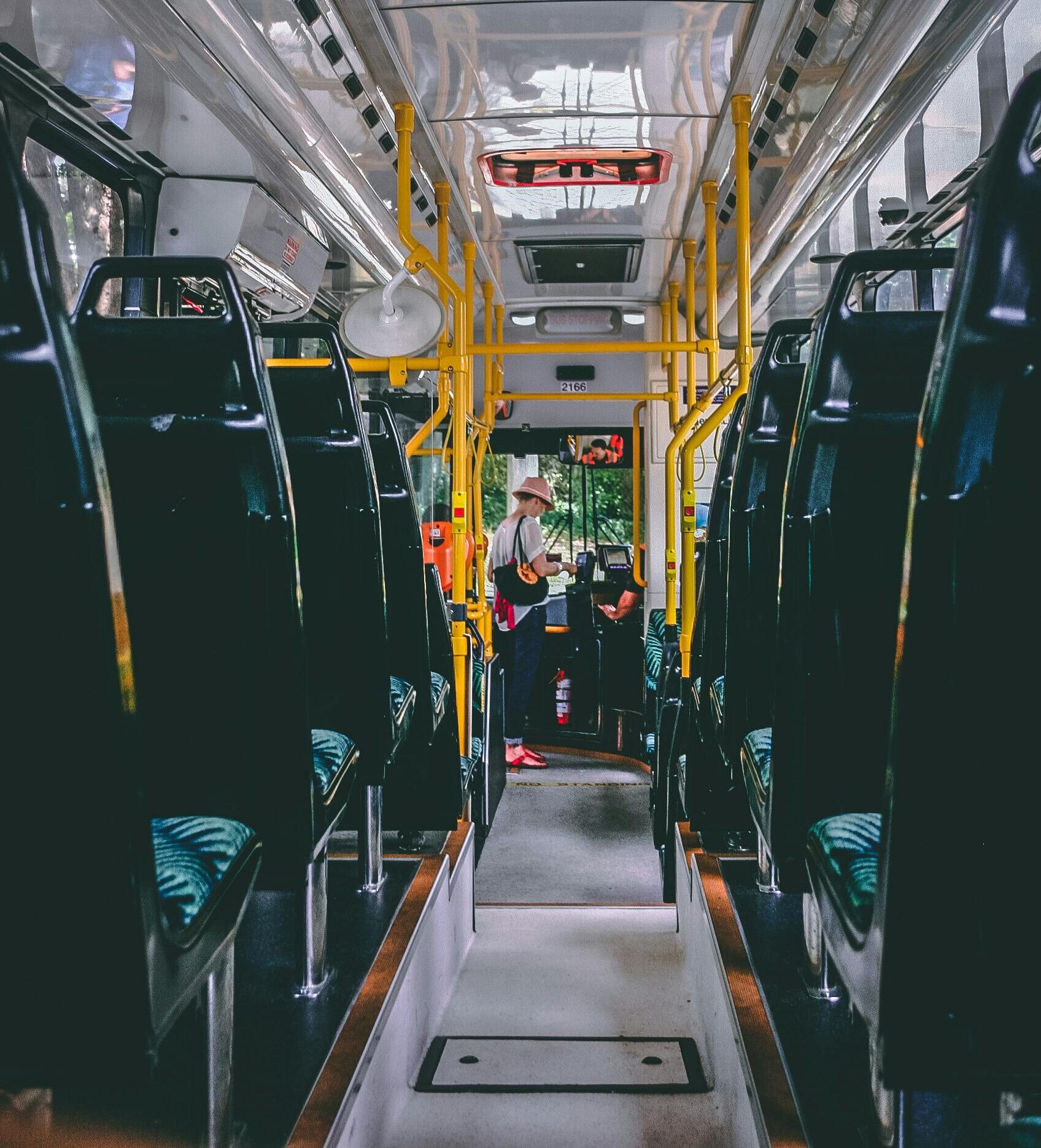
A key focus for us has been to press Welsh Government to introduce free public transport for all children and young people. We fundamentally believe that doing so would lift a financial weight from families’ shoulders, would help connect young people to opportunities, and would be a positive move towards a greener Wales.
The Senedd Petitions Committee recognised the value of this call in its report, Freedom to thrive.
Despite significant support, the Government, to date, has rejected all calls to implement the change but we have seen them concede recently by introducing £1 bus fares foryoung people aged 16 to 18. Whilst we welcome this step which takes us in the right direction, we’ll continue to press on Government for universal free public transport for children, as we firmly believe it could help transform lives here in Wales.
As well as pressing for free public transport for all children and young people, we have also highlighted issues in relation to learner transport, including for children and young people who have to attend specialist provision. Our policy position outlines our concerns and commitments to continue to shine a light on these issues until arrangements are updated that would enable every child to have equal access to education.
Education provision
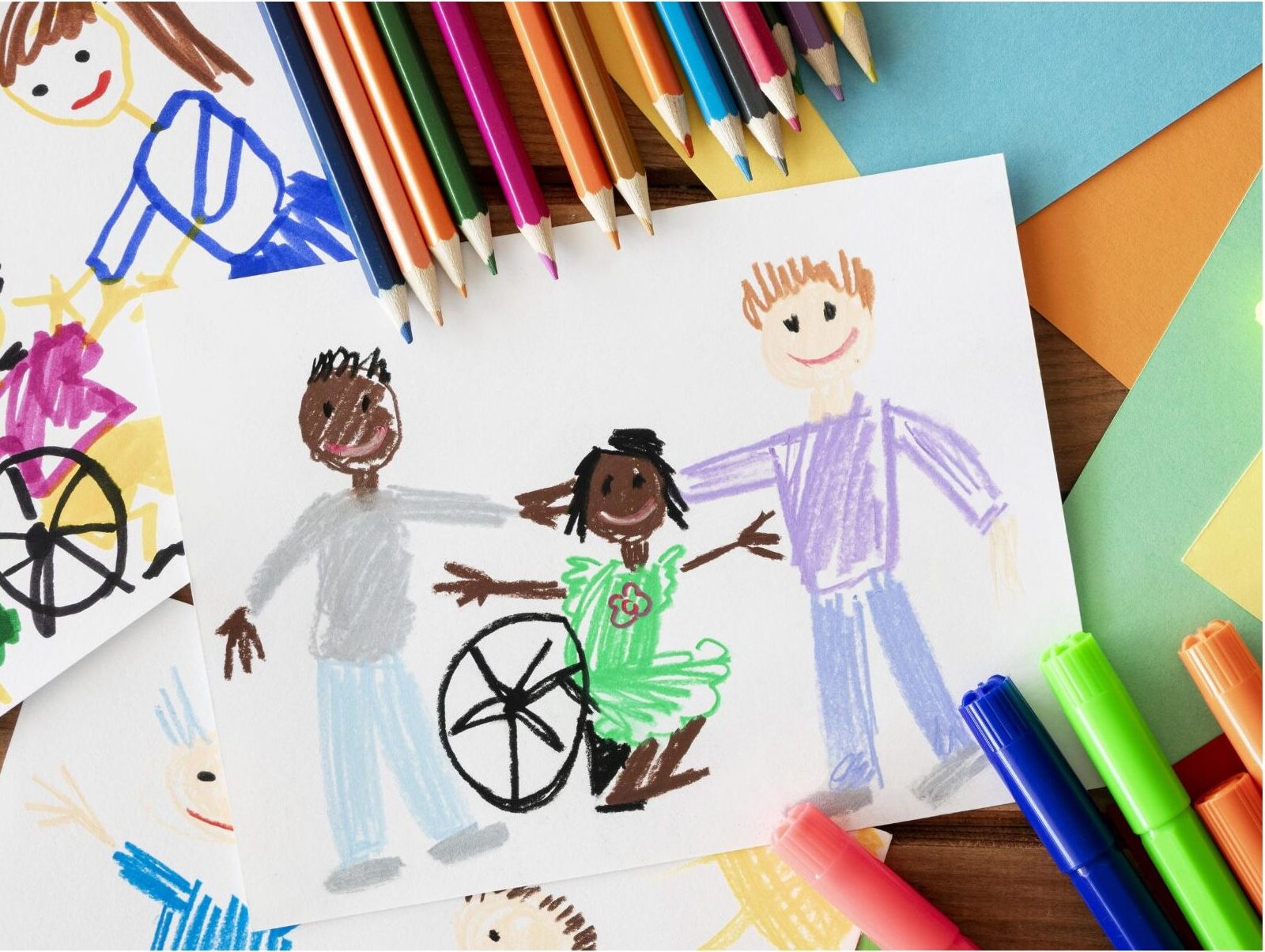
We know that children with additional learning needs and disabled children face some of the biggest barriers to education.
For disabled children, our work this year has included:
- pressing on the National Attendance Taskforce to consider the rights and needs of disabled children and young people as it attempts to resolve the persistent issue of absenteeism;
- holding Welsh Government to account on the delivery of the recommendations resulting from the Senedd’s Children’s Committee Inquiry into whether disabled children and young people have equal access to education;
Recommendation 10 of that review asked Welsh Government “… to consider reviewing accessibility strategies and plans across Wales, with a view to issuing directions to any local authority or school who is failing to discharge their duties under the Equality Act 2010”.
Our office has a wide body of evidence and a long history of raising concerns about the significant barriers disabled children face, in particular issues of accessibility. This includes a 2014 report about wheelchair accessibility in schools and in 2019 a follow-up report into the same issue showing a lack of progress. Our 2020 ‘Building Blocks’ report illustrated that more needs to be done to ensure inclusive education during the foundation phase. We called on Welsh Government to move ahead with urgency to review and strengthen guidance that would help increase access to schools for disabled learners.
In its response to us, Government agreed, and we’ll work with officials to ensure the review of the guidance ‘Planning to Increase Access to Schools for Disabled Pupils’ addresses the needs we’ve highlighted and effectively protects and promotes children’s rights.
- Writing to Qualifications Wales to detail our concerns on the decision to suspend the introduction of a GCSE in British Sign Language, to understand what the practical challenges were and how this decision will be kept under review.
For children with additional learning needs, we have:
- continued to make representation in the Welsh Government’s ALN Implementation steering group and sharing with members real-time case examples from our casework service;
- explored with Audit Wales the scope of their work looking at the sustainability of the ALN system in Wales;
- worked with families who we’ve supported through our independent advice service to create a short film about their experiences of navigating what is often a deeply frustrating and demanding system. The film illustrates families’ struggles with children going without provision they need, long waits for diagnoses, reduced school timetables and numerous other challenges. A copy has been shared with the Cabinet Secretary for Education at Welsh Government and we’ve posted it across our social media platforms to highlight the challenges. Our hope is that these experiences will focus efforts of Government, who is currently reviewing the clarity and accessibility of the ALN legislative framework. You can watch a copy of the film, ‘The constant fight’, and read our policy position on additional learning needs on our website, under ‘Publications’.
- Engaged with and fed into the drafting of the national vision and action plan for children and young people with a learning disability by Learning Disability Improvement Cymru (which is part of NHS Executive):
Employment
We have been discussing access to careers advice and work experience, noting barriers to young people’s opportunities with the move to hybrid working and the removal of funding to support and manage a national programme of work experience placements. We have taken this issue to the Minister for Culture, Skills and Social Partnership who committed to exploring future possibilities and funding around this.
We have been a part of Welsh Government’s Disability Taskforce Children and Young People’s Working Group. Wider working groups have considered Employment and Income, with the Action Plan due out for public consultation in Spring 2025.
Core work – how we’ve empowered children and their families

This year saw us support children and their families via our independent advice and assistance service on issues relating to disability and additional learning needs.
Between 1 April 2024 and 31 March 2025, our service supported 116 cases relating to children with additional learning needs. This included six cases where families raised concerns about disability discrimination in education, and a further four cases where discrimination was reported in relation to ALN provision.
Our case management system does not currently allow us to record “disability” as a standalone characteristic, so we’re unable to provide a precise figure for the number of disabled children supported. However, by using related issue categories – such as ALN/SEN and disability discrimination – we have been able to estimate the volume of relevant cases. These include children and families facing barriers to appropriate education, challenges in securing school placements, and concerns around the adequacy of ALN provision. While not a definitive count of all disabled children we’ve supported, this gives a meaningful picture of the nature and breadth of the issues we’ve helped to address over the past year.
What next for us?
We will continue to work towards our ambition for a Wales for all children – a country where every child and young person understands their rights and are able to access support for those rights to be realised. Work on challenging and helping to improve local and national practice, to ensure more children’s rights are protected and realised will continue.
In addition to continuing to push for reforms on issues prioritised in 2024/25, the team will also undertake some more focussed work looking at issues related to school attendance, the up-coming Welsh Government consultation on anti-bullying guidance, and meaningful participation of children in decisions affecting their lives. During this forthcoming year, we will continue to engage with and involve disabled children and young people in our work via our community ambassador scheme and young people’s advisory panel.
For us to be able to demonstrate to those children and young people who bravely shared their experiences with us in 2022 as part of our Ambitions for Wales work, we will refine our accountability processes so that we can demonstrate what impact we’ve had on issues affecting their lives and establish the extent to which public bodies and decision makers see children as active citizens, the extent to which children’s rights are included in local and national policies and the extent to which public bodies and decision makers are aware of and respect children’s rights.

